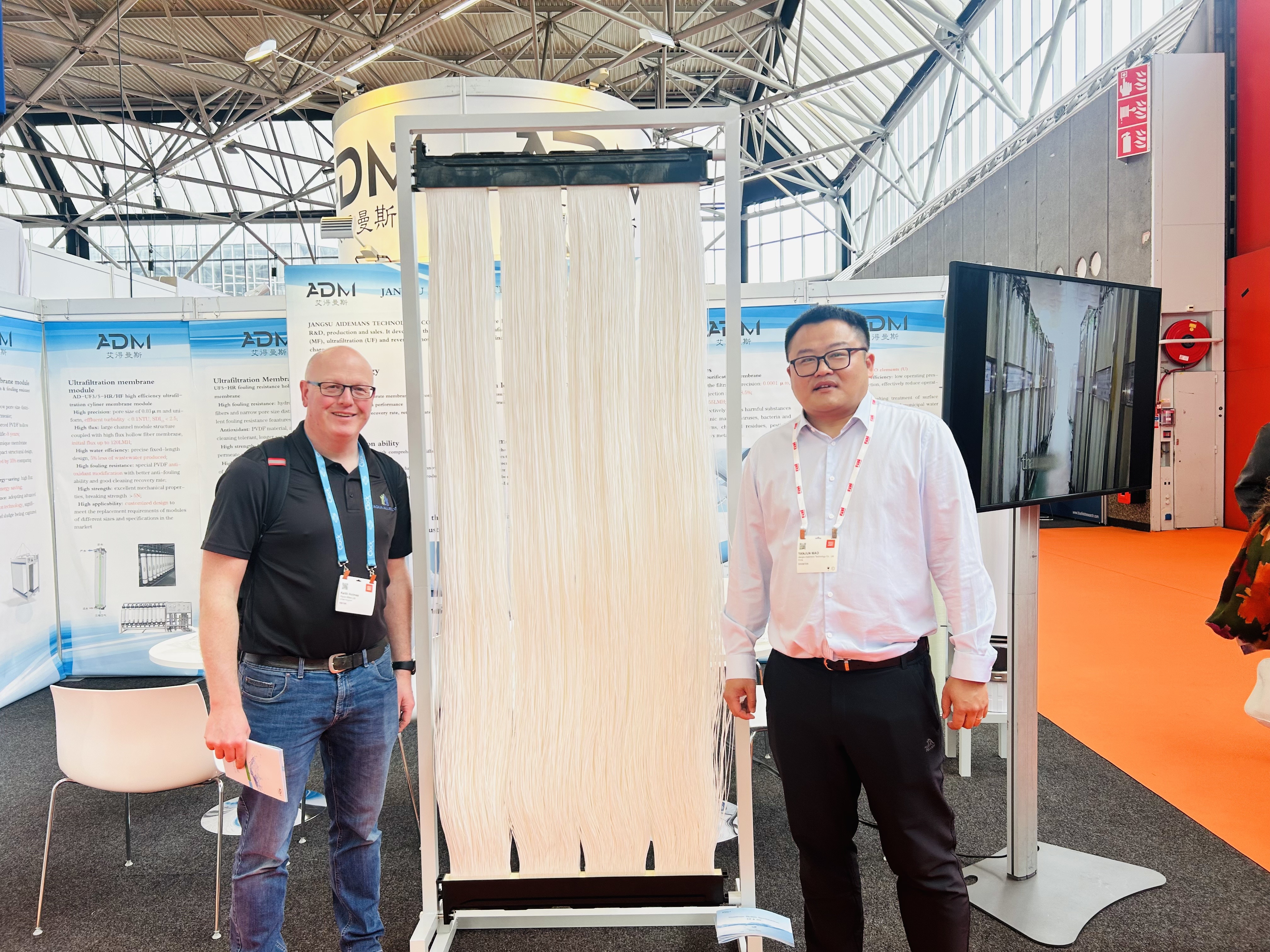What are the advantages of ultrafiltration membrane design in industrial applications?
Release time:
2025-05-06
1. High-efficiency separation and purification capabilities
The core advantage of ultrafiltration membranes lies in their high-efficiency separation capabilities. They can selectively separate substances in a solution based on molecular weight, suitable for various industrial applications:
Water treatment: In industrial wastewater treatment, ultrafiltration membranes can effectively remove suspended solids, colloids, bacteria, and viruses, significantly improving water quality.
Food and beverage industry: Ultrafiltration membranes are used for juice clarification, dairy concentration, beer filtration, etc., removing impurities while retaining nutrients.
Pharmaceutical industry: In drug purification, ultrafiltration membranes can separate macromolecules such as proteins and enzymes, ensuring high product purity.
2. Energy-efficient and environmentally friendly
Ultrafiltration membrane technology has significant energy-saving and environmental advantages in industrial applications:
Reduced use of chemical agents: Traditional water treatment processes often require the addition of large amounts of chemical agents (such as flocculants and disinfectants), while ultrafiltration membrane technology can reduce or even eliminate the use of chemical agents, reducing the risk of secondary pollution.
Resource recovery: Ultrafiltration membranes can recover useful substances (such as proteins and dyes) from industrial wastewater, enabling resource reuse and reducing waste.
These characteristics make ultrafiltration membrane technology an important support for green industry.
3. Simple operation and easy automation
Ultrafiltration membrane systems are typically designed with the following characteristics:
Modular design: Ultrafiltration membrane components can be flexibly combined to adjust the processing scale according to actual needs.
Automated control: Modern ultrafiltration membrane systems are usually equipped with automated control systems that can monitor operating parameters (such as pressure, flow rate, and water quality) in real time, enabling unattended operation.
Easy maintenance: Cleaning and replacement of ultrafiltration membranes are relatively simple, and membrane performance can be restored and service life extended through backwashing and chemical cleaning.
These characteristics give ultrafiltration technology high operability and maintainability in industrial applications.
Easy maintenance: Ultrafiltration systems are simple to operate and maintain, and the membrane's filtration performance can be restored and its service life extended through regular chemical or physical cleaning.
Strong adaptability: Ultrafiltration technology can be widely used in various types of industrial wastewater treatment, including chemical, textile, food processing, and electroplating industries, demonstrating good adaptability and flexibility.
Retention of beneficial substances: In some industrial applications, ultrafiltration can be used as a pretreatment step to effectively remove impurities while retaining beneficial minerals and low-molecular-weight organic substances in the water, making it more suitable for specific industrial water reuse requirements.
Modular design: Ultrafiltration systems are easy to expand and upgrade. The number of membrane components can be adjusted as needed to flexibly adjust processing capacity, suitable for industrial wastewater treatment projects of different scales.
Continuous operation: The ultrafiltration process supports continuous operation, providing a stable supply of high-quality recycled water or a stable water source for subsequent advanced treatment, improving the efficiency and reliability of the entire water treatment system.
Jiangsu Aidemans Technology Co., Ltd. focuses on R&D, production, and sales of fine ultrafiltration membranes and zero-discharge reverse osmosis membrane products in the field of industrial zero discharge. The company's main products include ultrafiltration membranes, membrane components, reverse osmosis membranes, microfiltration membranes, and membrane fibers. Adhering to a development strategy of "resource regeneration and green low carbon," the company promotes the reuse of valuable materials in industrial zero discharge, reduces carbon, nitrogen, and phosphorus emissions, focuses on challenging technologies, tackles high-barrier markets, and strives to become a specialized, refined, and innovative enterprise.
Related Content

